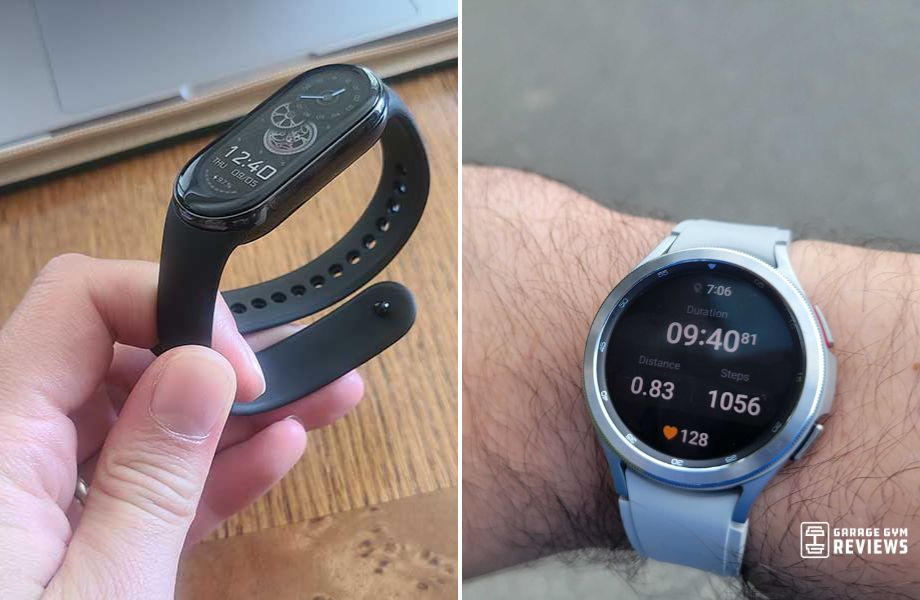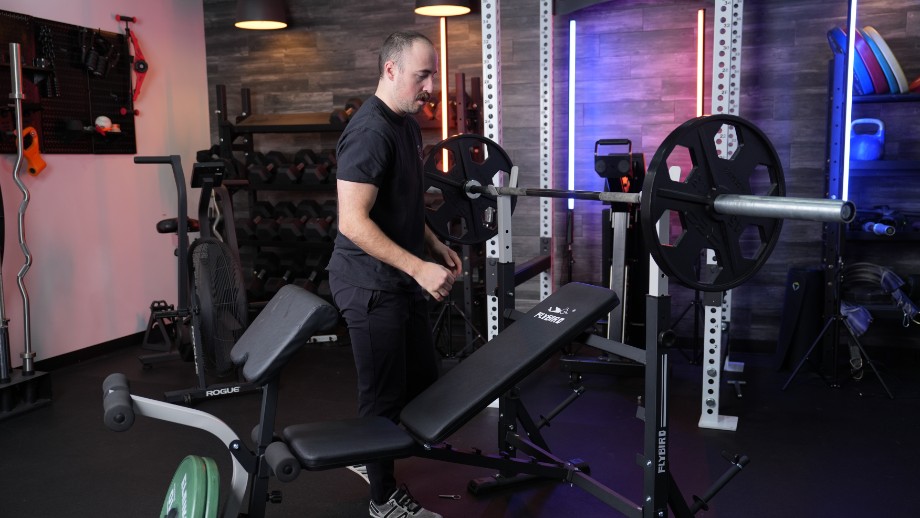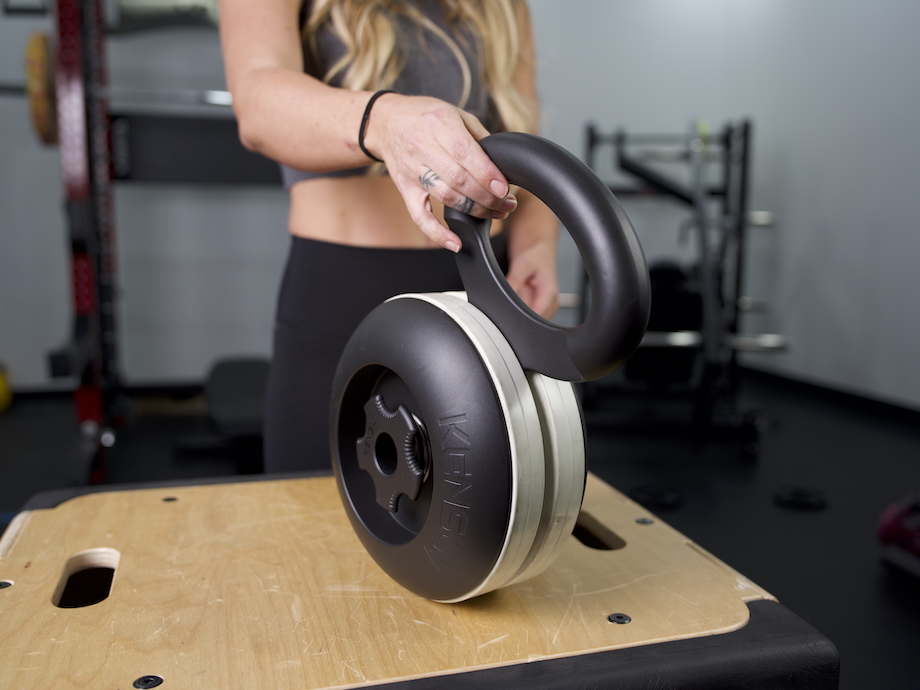Just like your feet deserve the best weightlifting shoes, your wrist (or finger, in some cases) also warrants a gift that keeps on giving. No, I’m not talking about a pair of the best wrist wraps—though I highly recommend them for anyone who wants to enjoy the benefits of strength training. Rather, I’m referring to a wearable device that can provide valuable perspective on your health and wellness using real data.
While the early days of activity tracking were mostly limited to monitoring step counts with basic pedometers, innovation has paved the way for more versatility, making features like heart rate monitoring, Bluetooth connectivity, built-in GPS, and even sleep tracking accessible to a wide range of users.
RELATED: Best Fitness Trackers
If you’re new to the world of activity trackers, you can easily get paralysis by analysis trying to figure out whether to invest in the latest Google Pixel Watch, get your finger fitted for an Oura Ring, or go with a budget-friendly option like the Fitbit Charge 6. As a certified personal trainer (CPT), longtime lifter, and Apple Watch owner, I love leveraging technology to help me become a healthier human overall. However, I also understand everyone has different needs, goals, and budgetary constraints.
To help you figure out which fork in the road to take, I put together this fitness tracker vs smartwatch buying guide, touching upon everything from the target audience for each type of device to comparing their similarities and differences. So, make room on your wrist and in your budget for an investment in your health and vitality that can pay dividends for the rest of your life.
Quick Look: Fitness Tracker vs Smartwatch
Although these terms are used interchangeably, a fitness tracker and a smartwatch are not necessarily the same. The former can be as simple as a pedometer (step counter) or as advanced as the Samsung Galaxy Ring, which earned the nod as the best fitness tracker ring for Android users from the GGR team. However, a fitness tracker’s main role is to monitor health metrics.
Meanwhile, smartwatches offer much more functionality than just fitness tracking. Many come equipped with electrocardiogram (ECG) and blood oxygen saturation sensors, a sleep tracker, and other health tracking technology. They also serve as an extension of your iPhone or Android smartphone by allowing you to make and receive phone calls and send text messages from your wrist, get real-time social media notifications, control your music playback, and more.
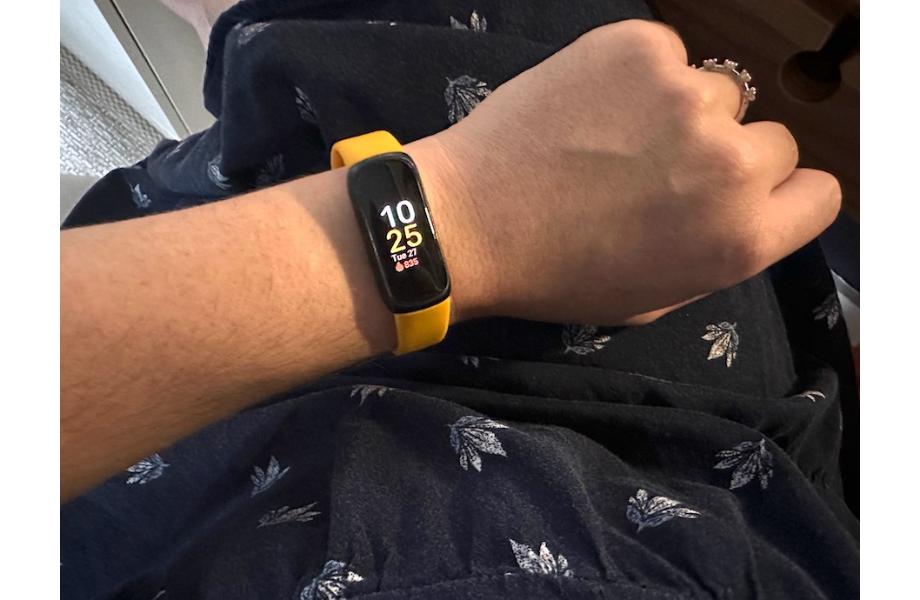
Who Should Use a Fitness Tracker
- People who need help with accountability
- Data-driven fitness enthusiasts who want insight into their activity levels
- Individuals who don’t need all the bells and whistles of a smartwatch
- Beginners or older adults who just need basic functionalities like step counting and calories burned
RELATED: Best Garmin Fitness Trackers
Who Should Use a Smartwatch
- People who love gadgets that allow you to perform many different functions
- Individuals who prefer a touchscreen interface
- Busy folks who need real-time notifications, alarms, and reminders to stay organized
- Individuals who want a stylish wearable fitness device
RELATED: Apple Watch Series 6 Review
Fitness Tracker Vs Smartwatch: What Are They?
Unless you’ve been living under a rock the last few years, chances are you or someone you know has some type of fitness tracker. But if you’re exploring the wearable market for the first time, I’ll break down how each type works and provide some examples of highly rated devices.
What Is a Fitness Tracker and How Does It Work?
A fitness tracker is an all-encompassing term that describes any wearable device that monitors health metrics, like your step count and heart rate. Fitness trackers come in several forms, including watches, bands, rings, and bracelets. They’re equipped with sensors that detect your heart rate, and some have built-in GPS to track your route when you go for a run or ride.
While fitness watches provide more functionality than bands and rings, they’re also more expensive, take up more space on your body, and can be more of a distraction—especially if you leave notifications on. However, bands and rings are more limited in their capabilities, making them better suited for folks who just want health metric tracking.
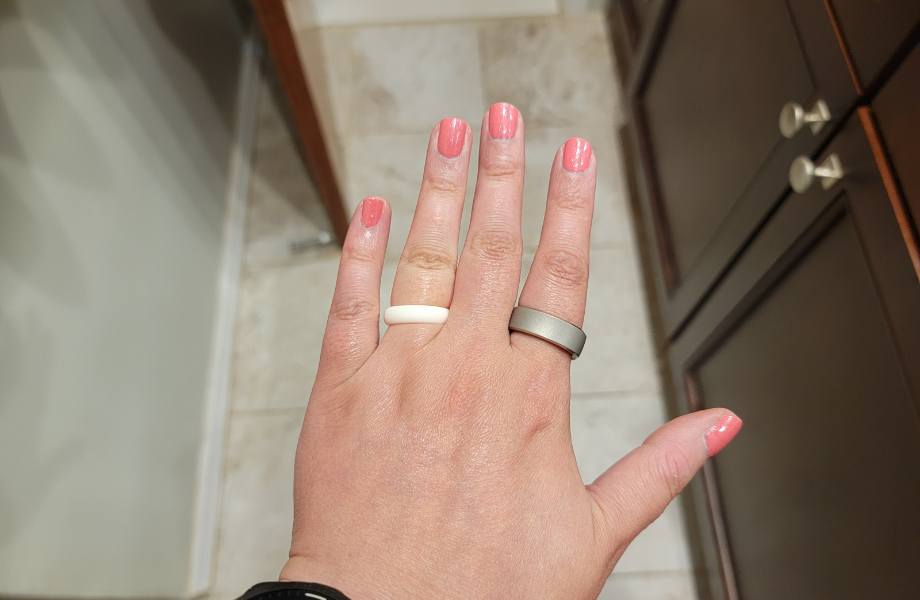
Based on our collective experience as certified personal trainers, CrossFit Level 1 Trainers, and expert product testers, the GGR squad has a few favorite fitness trackers, including the following:
- Fitbit Charge 6
- Whoop 4.0
- Oura Ring
- Fitbit Inspire 3
What Is a Smartwatch and How Does It Work?
Although it took me a while to warm up to the idea of a smartwatch, I’m all aboard the hype train. As someone who’s always on the go, I love being able to sync my Apple Watch with my iPhone so I can stay on top of everything. Connectivity is really the main benefit of going with a smartwatch over a more basic fitness tracker.
You can download plenty of third-party apps, including Spotify, Starbucks, and other applications, allowing you to handle transactions and other business right from your wrist. Plus, you can answer a phone call or use a voice assistant feature like Siri on an Apple Watch or Google Assistant on a Pixel watch with Wear OS.
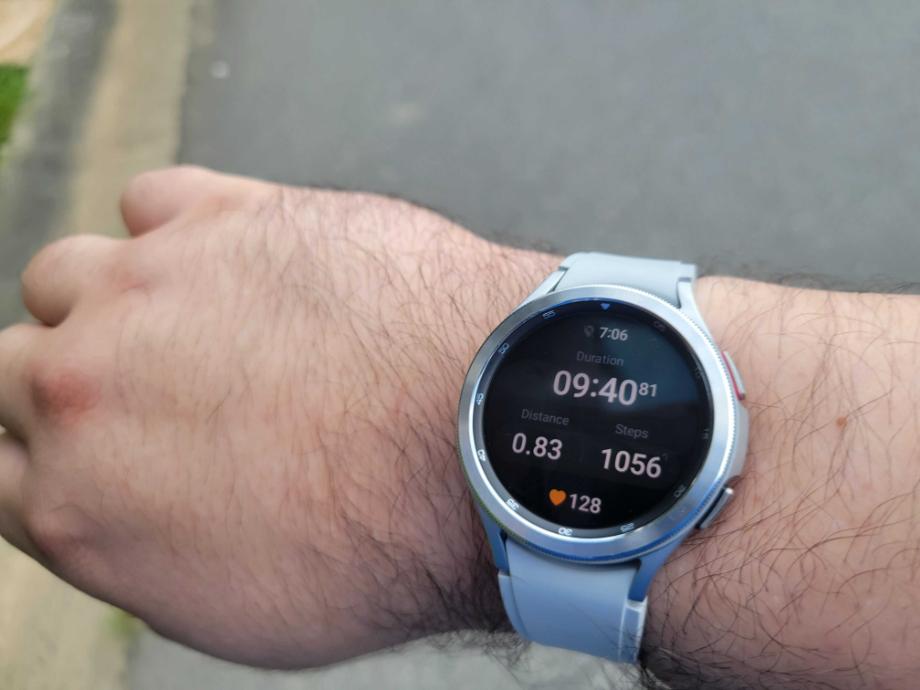
Of course, smartwatches also offer aesthetic benefits. For example, you can change bands or watch faces to suit a specific mood or style. And, while the Galaxy Watch 5 didn’t have them, Samsung reintroduced rotating bezels with their Galaxy Watch 6.
If you’re considering this more advanced fitness tracking route, some of the best smartwatches include the:
- Apple Watch Ultra (and the Apple Watch series in general)
- Samsung Galaxy Watch series
- Garmin Vivoactive 5
- Polar Vantage V
- Google Pixel Watch series
- Amazfit Bip Smartwatch
RELATED: Garmin Forerunner 965 Review
Benefits of Fitness Trackers and Smartwatches
Why would anyone spend potentially hundreds of dollars on a watch, band, or ring that tracks your steps or keeps track of how many calories you burn? Coming from someone who refused to see the light for years, consider the rewards you can reap by investing in some type of fitness tracking device.
They Promote Accountability and Connectivity
As a CPT, the most important component of a client’s success is accountability. While the 75 Hard Challenge helped me become ultra-disciplined, I know it can be difficult for some people to stick to a plan. Having a fitness tracker or smartwatch can encourage you to stay on track in different ways.
For example, I like that my Apple Watch sends me a notification when it’s time to stand up or when I’m a specific number of calories away from hitting my daily goal. You can also stay more accountable by joining the online community for your fitness tracker or smartwatch manufacturer. You can invite family and friends or find a group to sign up for fitness challenges that encourage everyone to give their best effort on a daily basis.
RELATED: What Is the 75 Hard Challenge?
They Give You Insight Into Various Health Metrics
Want to know how much time you spend in deep sleep? Or how about your average heart rate during your 30-minute HIIT treadmill workout? Fitness trackers and smartwatches provide valuable data that can help you make decisions about your health and wellness routine.
In addition to tracking your typical health metrics like calories burned, total steps, and heart rate, you can get deeper insights into your blood oxygen levels while you sleep, your stress levels, or your sleep quality. While that may be too much information for some people, others may find it valuable to know as much as possible about what their body is going through when awake and at rest.
RELATED: Fitness Statistics and Facts
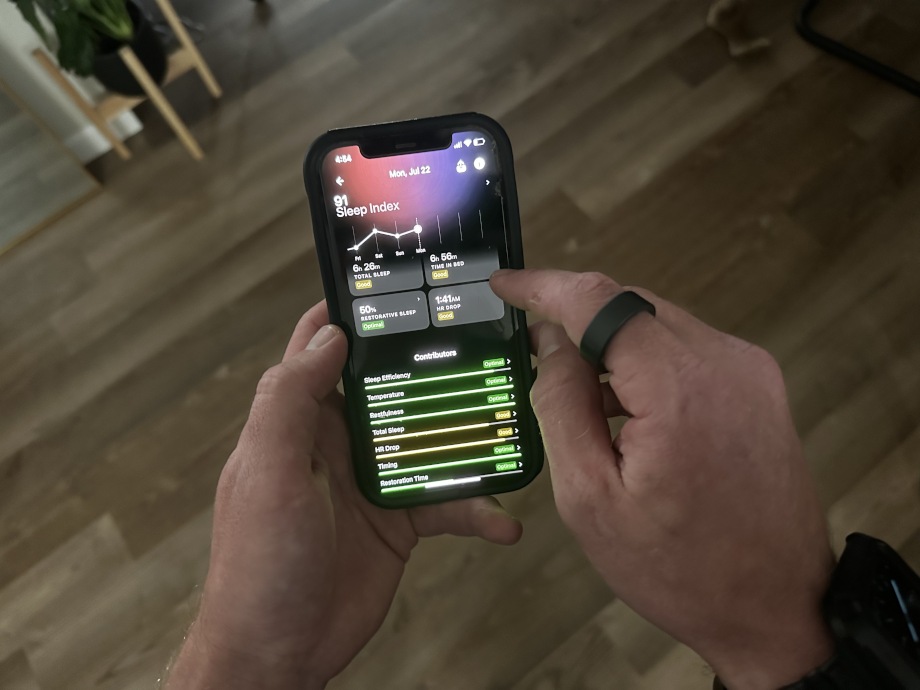
They Can Help Support Your Weight-Loss Efforts
Remember that accountability factor? Well, research shows that activity trackers can be effective at supporting weight loss—a process that’s heavily influenced by your ability to stay consistent with your nutrition and training. According to a 2018 systematic review1, short-term weight-loss interventions of less than 6 months using activity trackers may be a better option than a standard weight-loss program for middle-aged and older adults.
Interestingly, though, the study concluded that younger adults may not benefit from using fitness-tracking technology.
RELATED: 13 Tips on Breaking a Weight Loss Plateau
They Offer Convenience
It’s a lot easier to take a phone call from your wrist than to pull your phone out of your pocket, hold it to your ear, and try to stay focused on whatever else you’re doing. By the same token, it’s a lot easier to just “put a ring on it” and let a fitness tracker do the rest of the work by recording your physical activity for the day.
Whichever route you go, there’s no doubt that having fitness tracking technology and the ability to stay in sync with your social and professional life can be incredibly convenient. However, you also don’t want to get lost on your device and forget your priorities.
Similarities and Differences Between Fitness Trackers and Smartwatches
To make a clear distinction between the two, I’ll go over the similarities and differences between fitness trackers and smartwatches so you have a firm grasp of each device.
Key Similarities
- Both allow you to gain insight into your health metrics and workout data.
- Both are available in basic, budget-friendly form or higher-end options.
- Both have battery life limitations.
- Both promote accountability and connectivity.
Important Differences
- Fitness trackers have less functionality and versatility than smartwatches.
- Fitness trackers are more discreet, with rings and bands taking up less space than a watch.
- Smartwatches are generally more expensive.
- Smartwatches allow you to stay connected with your smartphone, giving you the ability to make and receive calls and send texts.
RELATED: Cold Plunge vs Hot Tub
Fitness Tracker vs Smartwatch: Final Thoughts
Whether you buy a basic fitness tracker like the Xiaomi Smart Band 8 or a premium smartwatch like the Garmin vivoactive 5, you’ll be better equipped to be your best self. Diligence, discipline, and data-driven decisions usually yield the best results. This is exactly why wearable devices are trending toward becoming staple items rather than something only used by professional athletes.
Of course, collecting all that information is only half the battle. After all, there’s no reason to monitor your heart rate, keep track of your steps, or know how much time you spent in REM sleep if you don’t plan on putting that information to good use now and in the future.
No matter which side of the fitness tracker vs smartwatch line you ultimately fall on, don’t spend more time obsessing over numbers and notifications than practicing healthy habits like active recovery and hitting your macros if you want to unleash your full potential.
Fitness Tracker vs Smartwatch: FAQs
What’s the difference between a smartwatch and a fitness tracker?
While a fitness tracker primarily tracks health metrics like your step count, heart rate, and calories burned, a smartwatch is more like an extension of your smartphone, offering features like real-time notifications, text messaging and phone call capabilities, and compatibility with a variety of third-party apps.
What are the disadvantages of a fitness tracker?
While a fitness tracker can provide valuable insight, it may not necessarily provide accurate data. For example, it may over- or underestimate your step count or calories burned. Other disadvantages include cost and the potential to become dependent on and distracted by another device.
RELATED: Bellabeat Leaf Fitness Tracker
Is a fitness tracker worth it?
As a CPT and longtime athlete who finally took the wearable plunge by purchasing an Apple Watch in 2023, I think a fitness tracker is a worthwhile investment if you’re committed to maximizing your potential. You can use the data to help build and make changes to your workout plan, sleep schedule, and food intake so you can get the best results.
How do fitness trackers and smartwatches compare in terms of battery life?
In general, fitness trackers have a much longer battery life than smartwatches. For example, while the Fitbit Charge 6 has an advertised battery life of seven days, the Apple Watch SE only lasts 18 hours.



